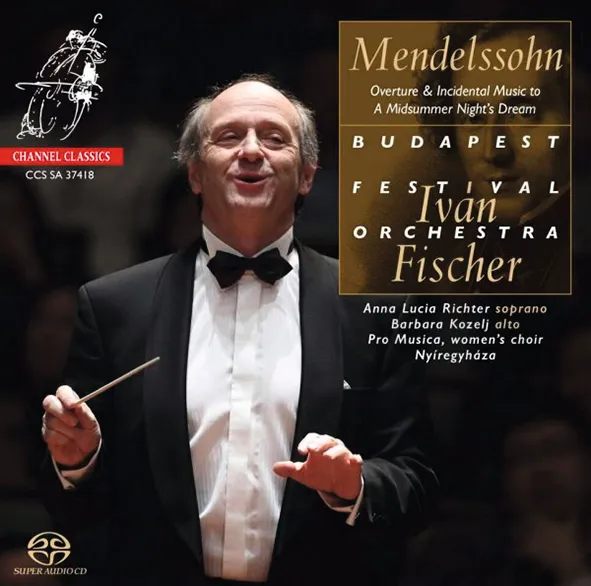
Mendelssohn Felix Mendelssohn: A Midsummer Night’s Dream – Overture; Incidental Music; Fanny Mendelssohn: May Night, Distance, Gondola Song Anna Lucia Richter (soprano), Barbara Kozelj (mezzo-soprano); Pro Musica, Nyiregyháza; Budapest Festival Orchestra/Iván Fischer Channel Classics CCS SA 37418 (hybrid CD/SACD) 56:35 mins
Iván Fischer is alive to the magical atmosphere of Felix Mendelssohn’s score and nowhere more keenly than at the start of the overture, where the four wind chords are extended beyond their usual length, acting as a foil to the really hushed pianissimo of the strings that follow. The playing throughout is of the highest quality and my few reservations are directed elsewhere. I question, in the ‘Notturno’, whether the instruction ‘agitato’ implies an increase of speed rather than just one of energy. Also the danger is that, as here, the return of the marvellous horn theme comes out slightly quicker than on the first time round. It’s well known that it takes considerable skill for professionals to play badly on purpose, so full marks to the clarinettist for the comic noises in the ‘Funeral March’, beautifully calculated to lie somewhere between pleasure and outright pain. The only tiny blemish in the playing, which surprisingly slipped through the editing, is the rogue open A-string that briefly interferes with the B major ending of the ‘Clowns’ Dance’.
The three songs by Fanny are well worth hearing. In ‘Ferne’, a lament for past happiness, she taps into a vein of melancholy that her brother rarely explored so successfully, and the dissonance on the repeat of ‘ertötest’ is heart-wrenching. But in all three, sharper consonants would have helped, not to mention more imaginative colourings of the voice.
Roger Nichols